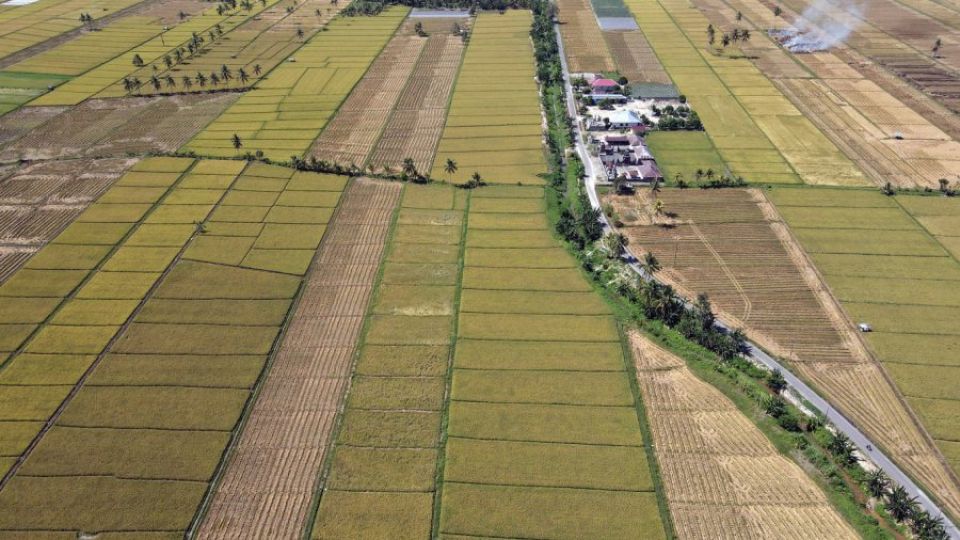March 28, 2023
JAKARTA – The government has decided to import 2 million tonnes of rice in 2023 to replenish diminishing government rice reserves (CBP) needed to stabilize prices at the consumer level, with 500,000 tonnes to be delivered “as soon as possible”.
The move has sparked a backlash from smallholders in producing regions, fearing the import would bring down farmgate prices and hurt local farmers.
The amount marks the largest CBP import during President Joko “Jokowi” Widodo’s 10-year tenure after a 2017 decision that brought in 1.8 million tonnes of rice.
The National Food Agency (NFA) tasked the State Logistics Agency (Bulog) to carry out the import so it could replenish its stock.
The decision was taken after the CBP depleted from 1 million tonnes in early 2022 to 230,000 tonnes in March, below the safe threshold required by law at 1.5 million tonnes.
The NFA further added that the supply was needed to disburse as social aid, amounting to 640,000 tonnes for more than 21,000 households, which could not be covered with the current stock level.
“Bulog’s CBP is only 220,000 tonnes. We do not want the stock to be unavailable while we need to carry out such a program,” NFA chief Arief Prasetyo Adi told reporters on Monday, as quoted from Tempo.co.
“So, it’s not that we are pro imports,” he said separately.
He assured that rice imports would be conducted by considering the domestic producers and that Bulog would remain focused on optimizing domestic rice absorption.
Read also: Rice import may harm local farmers as price gap widens, warns Kadin
Trade Minister Zulkifli Hasan told reporters on Monday that the decision had been made during a meeting with President Joko “Jokowi” Widodo and that the ministry would support the move.
Rice makes the highest contribution to inflation compared with other commodities, according to Statistics Indonesia data, meaning that stabilizing its price is a top priority for the government, especially during a political year in the lead-up to the election.
Indonesian Political Economy Association (AEPI) agriculture expert Khudori said on Monday that Bulog’s CBP was “incredibly low” and likely to remain that way, as the agency was not expected to be able to absorb enough rice from farmers effectively.
Bulog is tasked to restore rice stock to 2.4 million tonnes throughout 2023 with 70 percent of the amount needed to be secured during the harvest season this year, but as of March 24, the agency had absorbed around 48,513 tonnes of rice, Khudori said.
“Looking at the trend, Bulog will likely miss the absorption target,” Khudori said in a statement.
Khudori explained that the farmgate price was higher than the government’s purchasing price (HPP), including after the recent government adjustment to accommodate higher prices, which would further constrain Bulog to absorb rice from farmers.
“This is a bitter and difficult decision,” Khudori said.
The 2-million-tonne import plan is opposed by local farmers, especially from Central Java and East Java, the country’s two largest rice-producing regions.
Mujab, who represents smallholders under Paguyuban Petani Qaryah Thayyibah in Central Java, told the Post on Monday that the import would lead traders to hunt for cheaper rice in the market. It would force the price at the farmgate to go down, which could hurt farmers already struggling with high production costs, he said.
Smallholders in East Java told the Post on Monday that the farmgate price has only recently been better, at between Rp 5,600 (37 US cents) and Rp 6,600 per kilogram from previously Rp 5,000 or lower.
Nur Kholis from smallholder group Makmur in Ponorogo Regency said the price had allowed them to match the high input costs such as from fertilizer, but he expected this would be short-lived due to the impending imports.
“If the import did happen, farmgate prices would plummet. I cannot imagine what would happen to us,” Nur Kholis said.
Tri Wahyudi from smallholder group Turi Putih in Banyuwangi, East Java, said the move would weigh down farmers, as the import was occurring near the harvest period, which often resulted in lower farmgate prices as local production reaches its highest volume.
Read also: Govt ready to import 500,000 more tonnes of rice ‘if needed’
Dwi Andreas Santosa, who chairs the Indonesian Farmers Seed Bank and Technology Association, told Kontan on Monday that he urged the government to refrain from executing the import plan, adding it was best to wait until August to get a clearer picture of the state of production this year.
He suggested the government opt to revise the HPP to allow Bulog purchases at higher farmgate prices. Alternatively, Bulog could consider increasing rice absorption outside Java Island, where there are many farmgate producers selling much closer to the government’s purchasing price, he said.
Dwi’s concern is reasonable, as the government’s major import decision in 2017 resulted in hundreds of thousands of tonnes left unused more than four months later, with some of the stock exceeding its year shelf-life, prompting Bulog to dispose of it.
Bulog president director Budi Waseso on Monday explained to reporters that the mandate did not necessarily mean that the government would import 2 million tonnes of rice straightaway.
“This is just a full-year allocation. That means we don’t have to import all 2 million tonnes,” Budi said after a meeting with House of Representatives Commission IV, which oversees agriculture.
He said the agency would study the situation closely, and review whether it needed to import to secure the rice reserves. He emphasized that the import would be done only if needed and currently the agency had yet to secure any import permits from the government despite the task.


